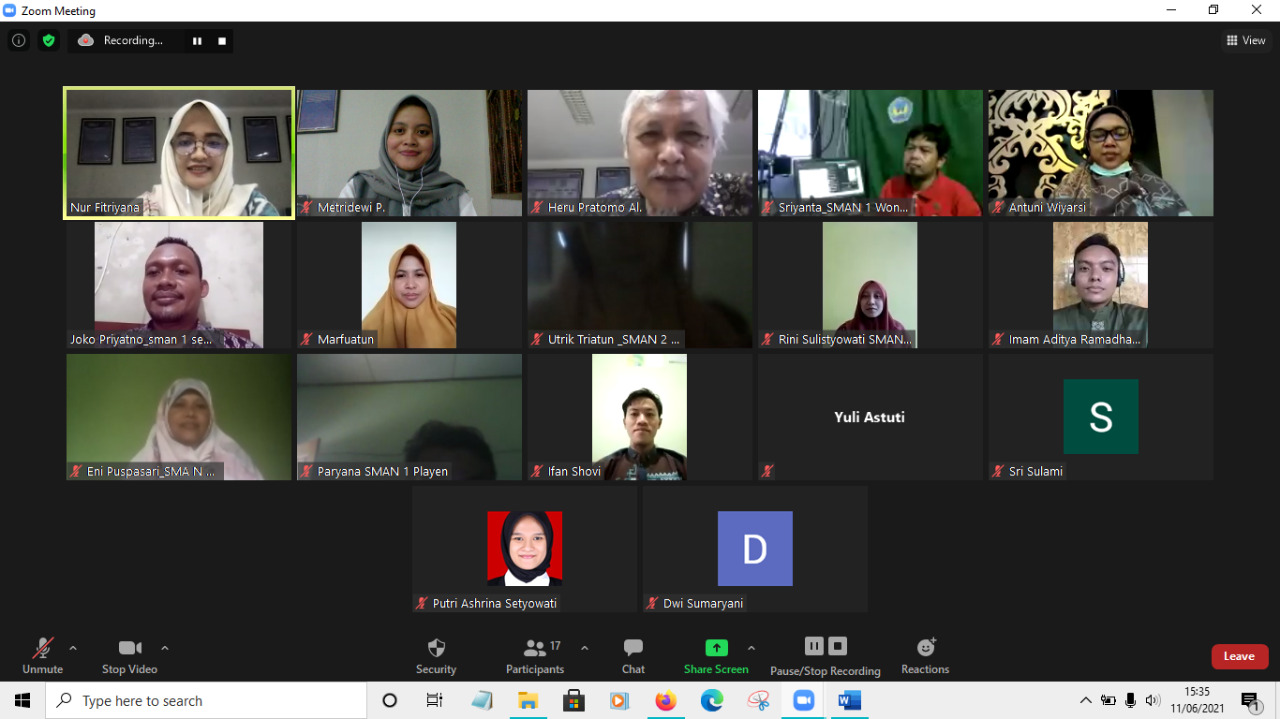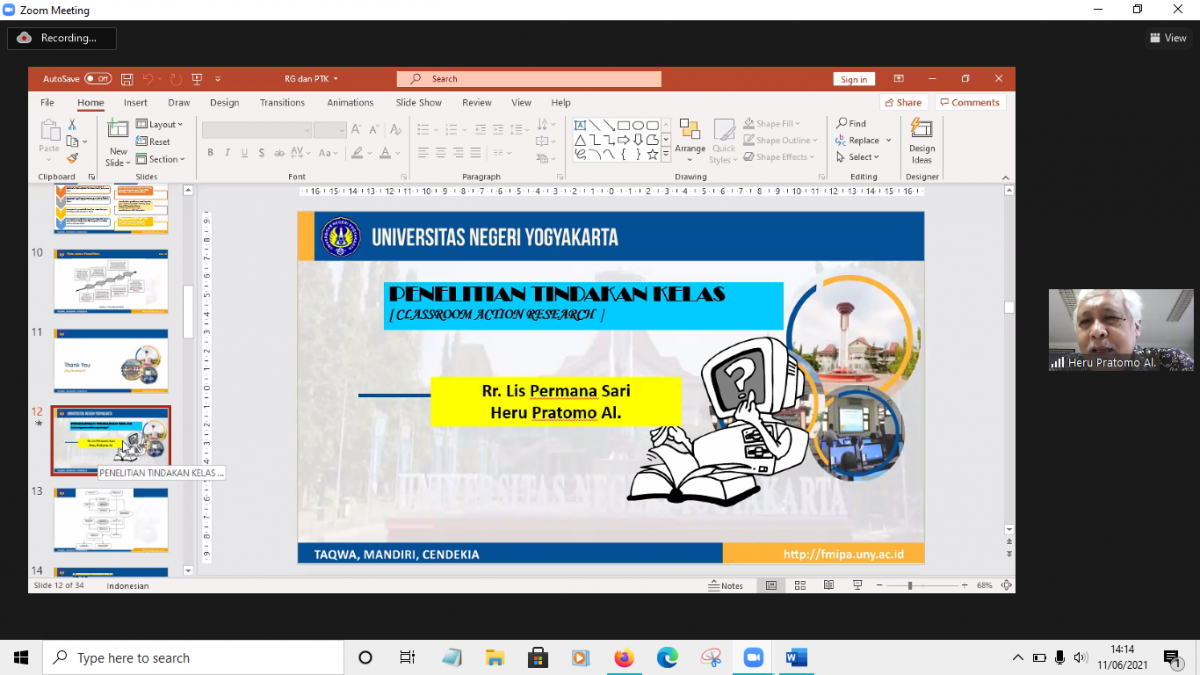 Bahasa Indonesia
Bahasa Indonesia English
English
You are here
Classroom Action Research for Chemistry Teacher in Gunungkidul Regency

Friday, June 11, 2021, the Chemistry Education Study Program has carried out one of the Community Service activities (PkM) with the topic of Classroom Action Research (CAR). This PkM activity is intended for high school chemistry teachers in Gunungkidul Regency. The activity was opened by the Coordinator of the Chemistry Education Study Program, Dr. Antuni Wiyarsi, M.Sc, as well as speakers for this PkM activity with Mr. Heru Pratomo Al., M.Sc. PkM activities were carried out online through Zoom Meetings and were attended by 22 members of the Chemical MGMP of Gunungkidul Regency.
In the core activity, Mr. Heru Pratomo, Al., M.Sc. provide an introduction to the results of the identification of misconceptions in chemistry learning. According to him, students' learning difficulties to understand chemical concepts that are considered complicated can be one of the problems in learning activities. This situation can be investigated through Classroom Action Research, with the aim of improving and improving learning practices in the classroom in a more professional. Basically, research activities in are an on-going movement. The characteristics of situational action research are taken from everyday learning practices that are really felt by educators, students, or both, so that efforts need to be made to solve them. The results of the research cannot be generalized because they only apply to the educators concerned and are self-evaluative, meaning that they are carried out continuously, evaluated in the process and aimed at improvement and/or improvement. By implementing action research, educators will be more professional because educators are accustomed to doing research so that educators are more confident, independent, and dare to take risks in making renewal. Some examples of problems identified as the focus of action research include: 1) low ability to ask critical questions, 2) low student involvement in the chemistry learning process, 3) low quality of teacher-student interaction management, 4) low quality of learning in terms of developing communication skills, and 5) low learning independence of students in a high school.
After Mr. Heru Pratomo, Al., M.Si conveyed about the technical implementation of CAR, the second material on the concept of CAR, was delivered by Mrs. Dr. Antuni Wiyarsi, M.Sc. Action Research can be done when there are certain specific educational problems that must be solved, to give educators an advantage to reflect on what is being done in learning activities. The advantages of using CAR for teachers include: 1) CAR can increase teacher creativity in improving the learning climate, 2) researchers can exchange experiences in determining each step to improve the learning process in the classroom, 3) can develop open and critical characteristics. In addition, there are several weaknesses of CAR, such as: 1) it requires a high sensitivity from the teacher to find learning problems, 2) it takes a long time, and 3) the research results cannot be generalized. One of the questions that emerged from the participants was the minimum and maximum cycles carried out in the CAR. According to the informant, there is no minimum and maximum limit for CAR research until the expected target is achieved. As for CAR research, the cycle can be limited if it is adjusted to the most important factor of action research, namely the need for solving practical problems in learning with the following types: 1) problems attached to learning materials such as low learning achievement, meaning the cycle must be completed in certain materials, 2 ) problems related to learning materials for mathematical skills, science process abilities, the ability to do practical work, and 3) problems that support mastery of materials such as collaboration skills, learning activities, interest in learning, HOTS. With the implementation of this PkM activity, the Head of the Chemical MGMP of Gunung Kidul Regency, Mr. Joko Priyatno conveyed that there was hope from high school chemistry teachers in Gunungkidul for the continuation of cooperation and training for the development of teacher professionalism, especially through practical activities/workshops for preparing research proposals. If needed, the Chemistry Study Program lecturer allows to assist teachers in schools in carrying out CAR, for example as consultants. It is hoped that PkM activities on CAR can inspire chemistry teachers in high school to conduct research as one of the activities for developing teacher professionalism.

Sistem Informasi
Kontak Kami
Program Studi Pendidikan Kimia
FMIPA Universitas Negeri Yogyakarta
Gedung Dekanat D.07 FMIPA UNY
Kampus Karangmalang Yogyakarta 55281
Telp. (0274)586168 Pes. 115
Email: pend_kimia@uny.ac.id
Copyright © 2025,
